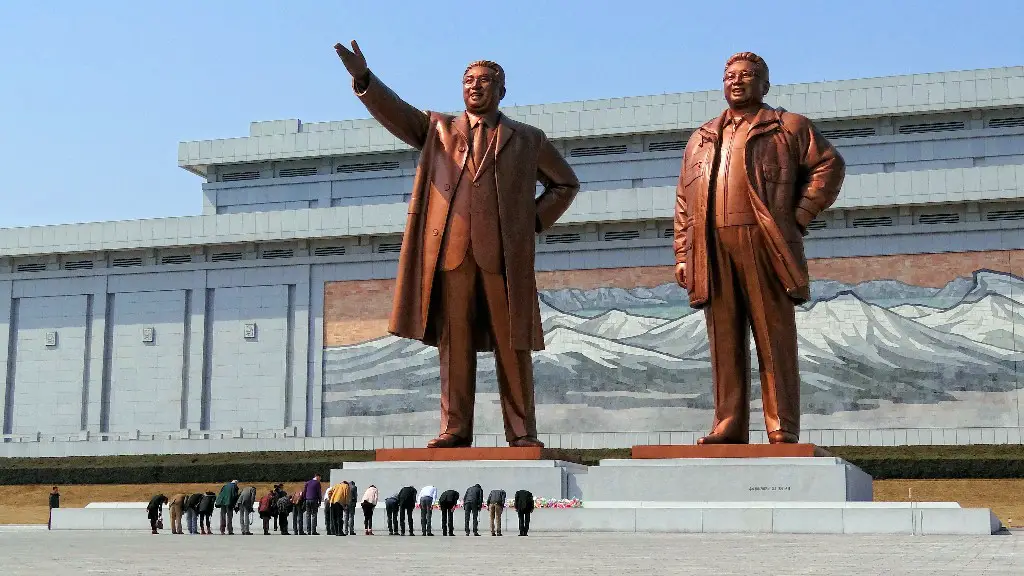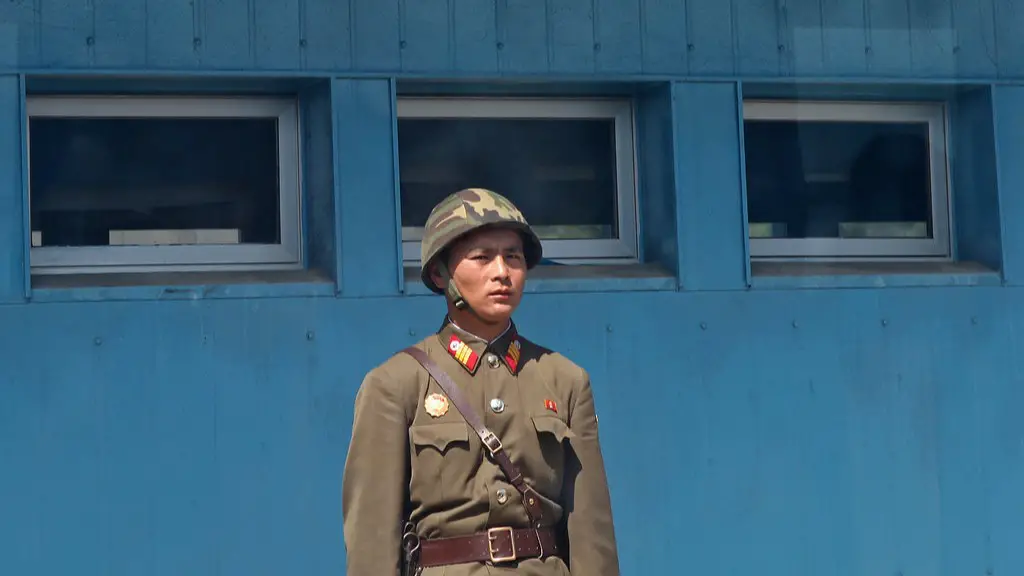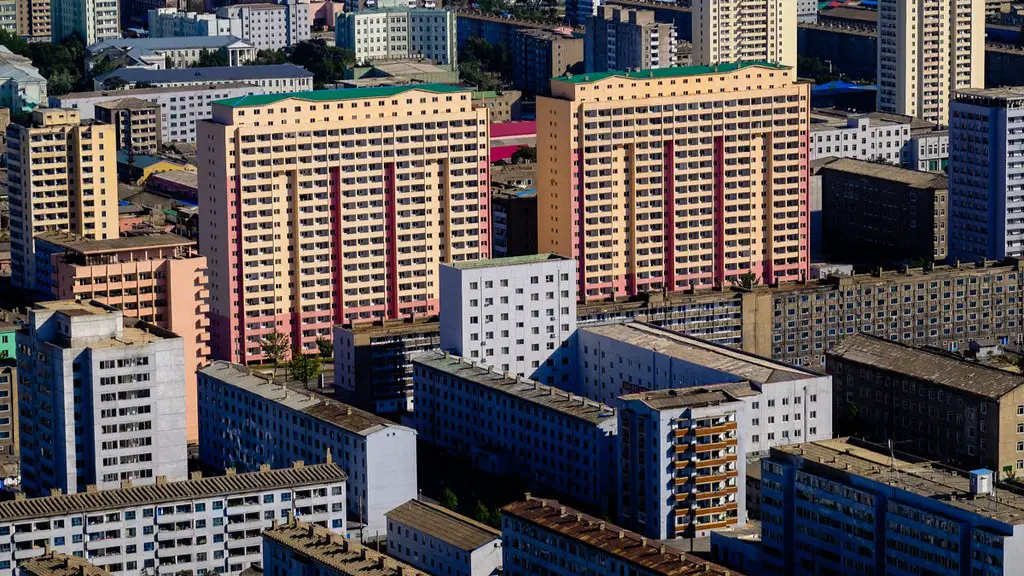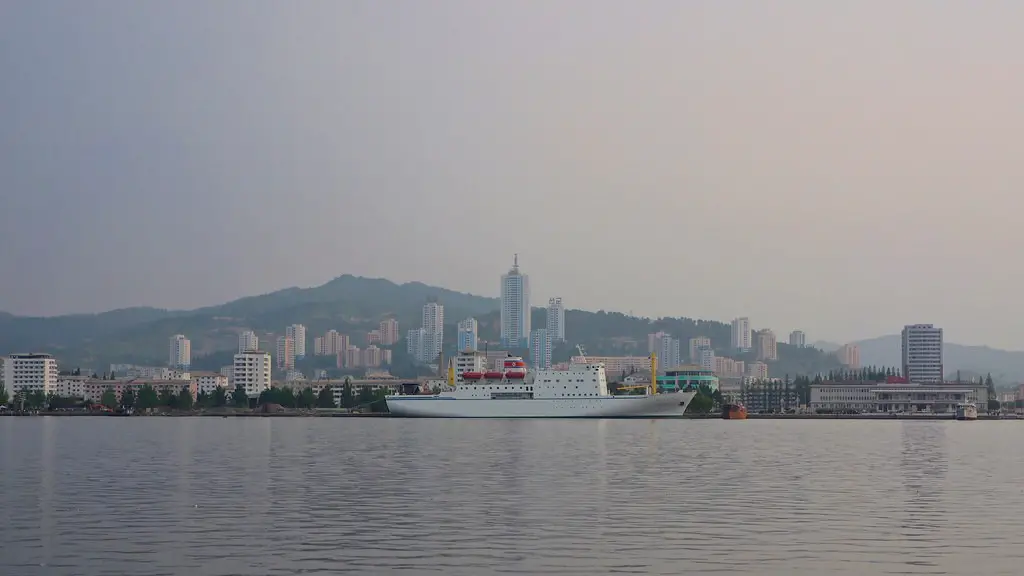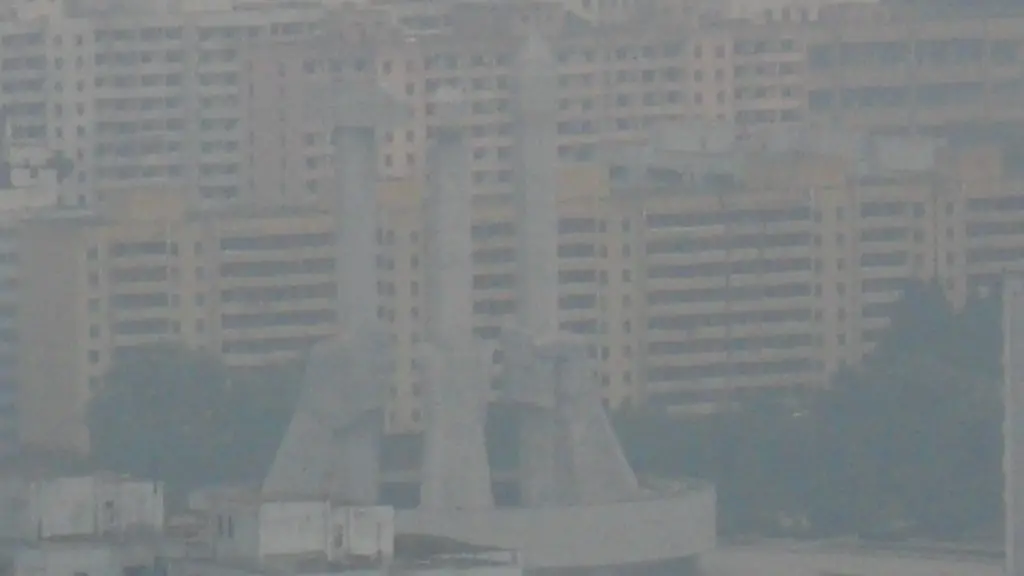Introduction North Korea is a seemingly inescapable country. Between the surveillance tactics of its all-powerful government, the threat of harsh punishments for any signs of dissent, and the country’s closed borders, it can be nearly impossible to get out. But why is it so hard to escape North Korea?
North Korea is known for its oppressive regime and its tight control over information and the movement of people within its borders. It is this control that makes it so hard to escape the country. In order to leave North Korea, an individual must first overcome certain obstacles, including the danger of being caught and punished by the government, the difficulty of securing a passport, and the risk of being arrested and deported if discovered by authorities outside the country.
The North Korean government is known for its extreme surveillance tactics. It is believed that the security apparatus of the North Korean government has informants pervasive throughout society. Not only does the government monitor travel, but it also keeps a tight hold on the nation’s communication infrastructure, in order to prevent any citizens from speaking out against state policies. With omnipresent surveillance, North Koreans can never be sure if they are being watched, which makes it more difficult for them to plan an escape.
In addition to surveillance, North Koreans also face the difficulty of securing a passport. In the Country Report on Human Rights Practices of 2019, the U.S. Department of State found that North Koreans face obstacles in obtaining passports and visas, even to participate in low-risk or routine travel. The North Korean government has also been known to revoke passports, leaving citizens without a reliable form of identification.
Outside of the country, North Koreans run the risk of being arrested and deported if they are discovered by authorities. Many North Korean refugees attempt to flee to China as a transit point, but this has become increasingly dangerous due to the Chinese government’s own harsh crackdown on refugees. In recent years, many North Korean refugees were arrested and forcibly repatriated back to their country of origin, where they face severe punishments from the government.
Overall, North Korea continues to be one of the most difficult countries to escape from. Between the extreme measures taken by the government to prevent citizens from leaving, the difficulty of securing a passport, and the risk of being apprehended outside the country, escape from North Korea must be carefully planned in order to have even a small chance of success.
Traumatizing Punishments for Deserters
The punishments for attempting to escape North Korea are harsh, often leaving those who are caught with devastating psychological and physical injuries. For example, many deserters are imprisoned and forced to endure inhumane conditions, such as overcrowded cells, inadequate food, and unsanitary bathrooms. In some cases, deserters even face beatings and torture. These traumatic experiences can leave individuals psychologically and emotionally scarred, making it even more difficult for them to survive and escape North Korea in the future.
In addition to physical and psychological abuse, North Korean deserters also face the everyday threat of being caught. This can lead to further traumatic experiences, such as deprivation of freedom, fear of discovery and being sent back to North Korea, and a sense of helplessness. As a result, many who have escaped North Korea have undergone serious psychological trauma that has left them unable to live a normal life, regardless of whether they remain in exile or return to the country.
Given the government’s extreme surveillance tactics and its willingness to use violence to punish deserters, the chances of successfully escaping North Korea are slim. Those who have succeeded have had to take extreme precautions, such as bribing officials, evading authorities, and disguising themselves, and even then, the journey is often fraught with peril.
For those who remain behind, the threat of punishment for attempting to escape is ever-present and is an effective deterrent for many potential deserters. Even if the journey of escape is successful, those who remain in North Korea may be forced to endure the psychological trauma of knowing that their loved ones who attempted to flee may have been punished severely by the government.
High Risk of Probable Death
Furthermore, the risk of death when attempting to escape North Korea adds to the level of difficulty faced by those trying to leave. According to the Institute for National Security Strategy in South Korea, an estimated 3,000 people have died in attempted escapes. From starvation and hypothermia caused by the harsh winter conditions to drowning during illegal crossings of rivers, those who attempt to leave North Korea often face life-threatening dangers.
Often times, these risks are compounded by people smugglers, who charge high sums of money for their services while often providing little to no guarantees of success. In some cases, the smugglers may even abandon their clients midway through the journey, leaving them alone and vulnerable in a hostile environment. The risk of death is also a powerful deterrent to those considering escaping, making them think twice about risking their lives in the attempt to leave.
Moreover, deaths during escape attempts often go unreported, due to the North Korean government’s tight control of information. This not only prevents stories of victims from getting out, but also leaves those considering escape with little information to work with when determining whether or not to risk the journey.
Overall, the risk of death is yet another obstacle faced by those attempting to leave North Korea and a powerful deterrent for those considering escape. Not only does this risk make escape attempts much more dangerous and difficult, but it also puts those who remain behind in an even more precarious situation.
Vulnerability of Escape
It is also important to consider the vulnerability of those attempting to escape North Korea. Due to their lack of education, skills, and resources, many deserters are easily exploitable and can make easy targets. Once they eventually reach a country that offers asylum, they remain without access to financial assistance or housing, making it difficult to build a life in their new homes.
And, even if they manage to find shelter and employment, North Korean refugees often find themselves perceived with suspicion due to their status as outsiders. This can make them even more vulnerable to exploitation and can be a major obstacle in their attempt to build a new life.
Overall, North Korean refugees face a variety of challenges, from finding shelter and employment to dealing with discrimination and exploitation. These challenges make it difficult for them to build a new life once they escape North Korea, adding another layer of risk and vulnerability to the journey.
Strategies for Successful Escape
Despite the challenges of escaping, there are certain strategies that can be employed to make the journey smoother and safer. These include bribery, communication through underground networks, and relying on luck.
Bribes are an effective way of getting past government checkpoints, though they can be difficult to obtain without access to resources. Communication through underground networks is another strategy, as these networks can provide crucial information regarding routes to take and places to avoid when attempting to escape.
Finally, relying on luck can also be a successful strategy, as there is no exact formula for successfully escaping North Korea. While planning can go a long way, luck can often be the deciding factor in whether or not a successful escape will be achieved.
Overall, while there are strategies that can be employed and precautions that can be taken, there is no guaranteed way to successfully escape North Korea. The journey remains an incredibly risky and difficult one, and should not be taken lightly.
Strong International Support
Despite the inherent difficulties and dangers of escaping North Korea, international organizations such as the United Nations and the international community have been making efforts to ease the suffering and protect the rights of the North Korean people. For example, the UN has established the Office of the High Commissioner for Human Rights to address human rights issues, and there has been an increasing focus on humanitarian aid to North Korea, especially from China.
Moreover, international organizations, such as the UN Refugee Agency, have also taken steps to ensure the safety of North Korean refugees. These organizations have set up offices in countries like China and South Korea to provide legal and financial assistance to North Korean refugees and to monitor and protect their rights. Additionally, countries like South Korea have introduced resettlement programs to aid in the adaptation of North Korean refugees to their new homes.
Overall, the international community has taken important steps to assist the North Korean people and to protect their rights. While the journey to escape North Korea remains difficult, these efforts have undoubtedly had some effect in aiding refugees and providing them with a better chance of successfully settling in their new homes.
Conclusion
In conclusion, North Korea is one of the hardest countries to escape from. The country’s oppressive government and tight control over movement of people and information make it difficult for those considering escape. North Koreans face the danger of being caught, the difficulty of securing a passport, and the risk of being arrested by authorities outside the country. In addition, North Koreans also face the risk of death, exploitation, and discrimination when attempting to escape. Despite this, there are strategies that can be employed to increase the chances of a successful escape, and the international community has taken efforts to assist North Korean refugees and protect their rights.
